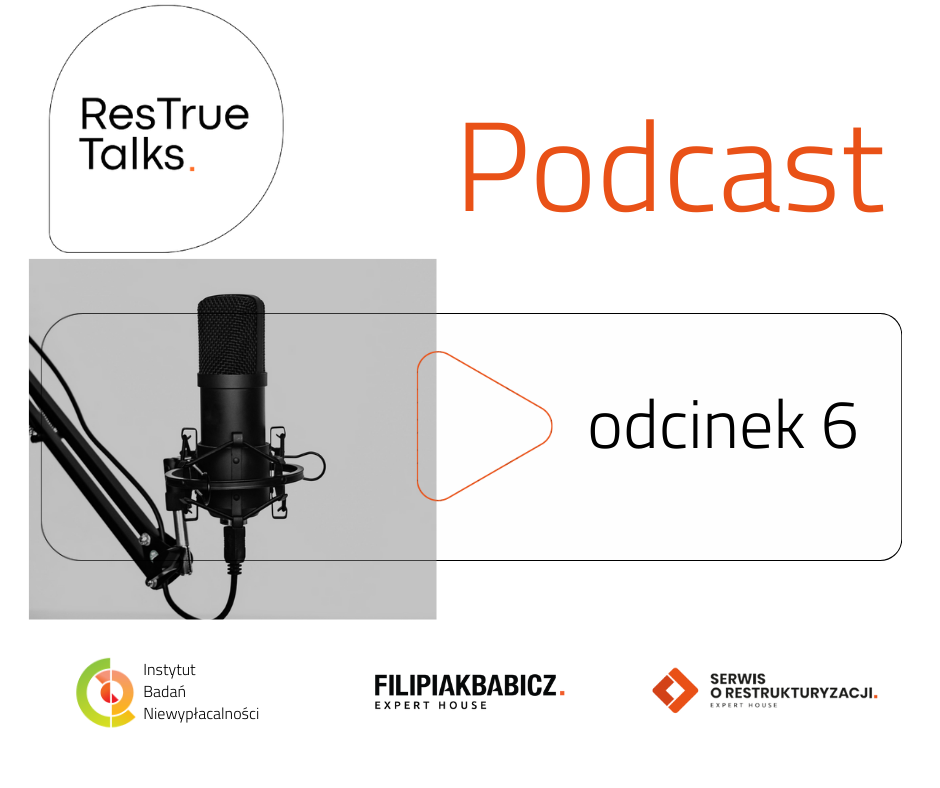
Simplified out-of-court restructuring

Simplified restructuring will be carried out in two stages. The first phase will take place entirely outside the court under the supervision of the restructuring consultant supervising the agreement. It will start as a result of the setting of the so-called agreement date and the announcement of the opening of proceedings in Court and Commercial Gazette. The supervisor of the composition agreement together with the entrepreneur will prepare composition proposals and conduct a vote. Only after obtaining a majority of 2/3 of the total value of receivables and more than half of the voters will the second stage start and a motion for approval of the composition agreement will be submitted to the court. After the final approval, the execution phase of the agreement will start.
The difference between the current proceedings for the approval of the arrangement (art. 210 et seq. of the Restructuring Law) lies in the protection against enforcement and termination of key agreements and in the possibility of including material creditors in the arrangement also without their consent.
The procedure is to be very short. The application to the court for approval of the concluded composition agreement must be submitted within 4 months from the date of the opening notice.
Minimum court participation
The most important proposal is to shift the burden of restructuring out of court. The protective effects for the entrepreneur will depend on the announcement in Court and Commercial Gazette, and not on the court’s ruling. This will streamline the procedure, reduce its costs and increase efficiency also for creditors. The court will be involved only at the stage of approval of the agreement, which will be previously voted on by means of an independent collection of votes.
The proceedings will be conducted by the supervisor of the agreement, i.e. a licensed restructuring advisor. Under his supervision, a written collection of votes will take place, with the supervisor being able to appoint a creditors’ meeting. If this is the case, he will chair the meeting, vote and declare the agreement approved.
Protection of the company
The key change is to recognise that the debtor’s assets will be protected without a prior court order. The protection will consist in a prohibition of enforcement concerning both unsecured and secured claims. A material creditor will be covered by the arrangement without the need for consent if the arrangement proposal includes full repayment of the amount under the agreement plus interest, with the repayment may be deferred or made in instalments. Of course, the material creditor retains the right to vote.
Furthermore, the termination of rental, lease, credit, loan, lease, property insurance, guarantees, sureties, letters of credit as well as bank account agreements will be prohibited unless the reason for termination occurs after the announcement in the monitor.
It will also be inadmissible for an entrepreneur to repay liabilities arising before the announcement in the MSiG. Cross-deductions, i.e. the deduction of a claim arising before the notice with a claim arising after the notice, will also be prohibited.
Creditor protection
At the same time, the legislator gave the creditors a protective instrument in the form of an application for the annulment of the protective effects of the notice. Any creditor may submit such an application to the court on the grounds that the protection is detrimental to all creditors. Currently, the possibility of harming creditors is a fundamental obstacle to the opening of court restructuring proceedings. If the court agrees with the creditors and waives the protective effects, it will still be possible to conclude an arrangement in this out-of-court procedure, but the entrepreneur will not benefit from the protection.
The interest of the creditors is also protected by the fact that any activities beyond normal management, such as the sale and encumbrance of property, will require the agreement of the supervisor of the arrangement. In practice, it is most likely that such acts will not occur in a way that would potentially harm the creditors.
The entrepreneur will therefore be subject to transparent supervision at an early stage. Any abuse will be prevented by the rule that protection under this simplified procedure can only be granted once.
A good tool for micro and small businesses
Simplified specprocedure will be a particularly interesting solution for micro and small businesses. It is not complicated, it goes on outside the court and above all it will be much cheaper than formal court proceedings. The legislator has limited the remuneration of the supervisor of the agreement by applying a degressive scale depending on the amount allocated to creditors in accordance with the provisions of the agreement (15% to the amount of PLN 100,000, 3% to amounts between PLN 100,000 and PLN 500,000 and 1% above PLN 500,000).
Moreover, this remuneration will mostly be a bonus for success, where the success will be an approved agreement. In the absence of the agreement, the remuneration will not be able to exceed twice the average monthly remuneration for the third quarter of the previous year, which is currently about 10,300 PLN.
Implementation of the EU Directive on the framework of preventive restructuring
Until 20 June 2021. Poland is required to implement the provisions of EU Directive 2019/1023 on the framework for preventive restructuring. The proposed simplified specprocedure largely implements important elements of the Directive. After checking these tools on fire, they could be transferred to the Act – Restructuring Law as a package facilitating the procedure for the approval of the agreement.













